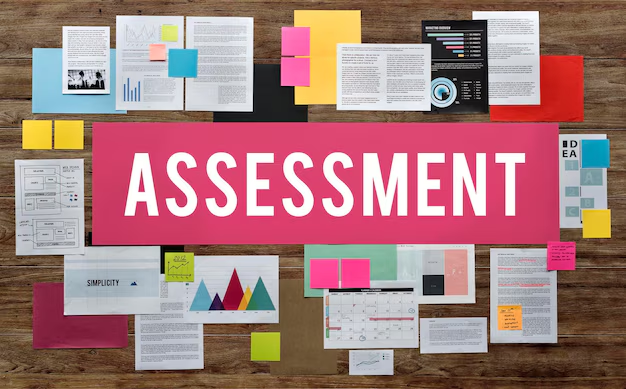Work Goals Examples For Evaluation: Proven Strategies That Work
Imagine that familiar knot of anxiety tightening in your stomach as your performance evaluation looms closer. You’re staring at a blank document, the cursor blinking mockingly, asking you to define your work goals. Sound familiar? You’re not alone. For many professionals, setting effective work goals, especially those that will be evaluated, can feel like navigating a minefield. It’s a delicate balance between ambition and achievability, between showcasing your potential and committing to realistic targets.
Table of Contents
But what if setting work goals for evaluation wasn’t a source of stress, but rather an empowering process? What if you could approach it with clarity and confidence, knowing you’re not just ticking boxes, but actively shaping your professional growth and demonstrating your value? This isn’t just wishful thinking. With the right approach and, crucially, the right examples, you can transform your performance evaluation from a dreaded judgment into a powerful catalyst for your career advancement.
In this comprehensive guide, we’ll demystify the process of setting impactful work goals examples for evaluation. We’ll move beyond generic advice and dive into actionable strategies and concrete examples tailored to various roles and industries. Whether you’re aiming for a promotion, seeking to enhance your skills, or simply want to ensure your contributions are recognized, you’ll find the insights and inspiration you need right here. Let’s turn that performance evaluation anxiety into anticipation for showcasing your achievements and charting your course for even greater success.
Why Are Work Goals Examples for Evaluation So Crucial?

Before we jump into specific work goals examples for evaluation, let’s understand why they hold such significance. It’s more than just pleasing your manager or meeting company expectations; it’s about strategically steering your career and ensuring your work has purpose and impact. Think of work goals as your professional compass and evaluation as the map check to ensure you’re heading in the right direction.
- Provides Direction and Focus: In the daily whirlwind of tasks and deadlines, it’s easy to lose sight of the bigger picture. Well-defined work goals act as your North Star, ensuring your efforts are aligned with your professional aspirations and your organization’s objectives. They help you prioritize tasks, focus your energy, and avoid getting bogged down in less important activities.
- Measures Progress and Success: “What gets measured, gets managed,” as the saying goes. Work goals provide a tangible yardstick to measure your progress and assess your achievements. When your goals are clear and measurable, you can track your performance objectively, identify areas of strength, and pinpoint areas needing improvement. This data-driven approach is invaluable for both self-assessment and performance evaluations.
- Facilitates Meaningful Performance Reviews: Imagine walking into a performance review without any pre-defined goals. The conversation can easily become vague and subjective, leaving you feeling uncertain about your standing and future direction. Work goals examples for evaluation provide a structured framework for these discussions. They ensure reviews are focused, constructive, and based on agreed-upon objectives, leading to more productive feedback and development planning.
- Boosts Motivation and Engagement: Working towards clearly defined goals is inherently motivating. When you know what’s expected of you and understand how your contributions contribute to larger objectives, you feel a greater sense of purpose and ownership. Achieving your work goals provides a sense of accomplishment, fueling your motivation and engagement in your role.
- Supports Professional Development: Setting goals isn’t just about current performance; it’s also about future growth. By incorporating professional development goals into your evaluation framework, you actively invest in your skills and knowledge. This proactive approach ensures you remain relevant, adaptable, and continuously progressing in your career journey.
In essence, work goals examples for evaluation are the cornerstone of a proactive and successful career. They empower you to take control of your professional trajectory, demonstrate your value, and continuously evolve in your chosen field.
Understanding SMART Goals: The Foundation of Effective Work Goals Examples for Evaluation

Before we delve into specific work goals examples for evaluation, it’s crucial to understand the SMART framework. This widely recognized acronym is your secret weapon for crafting goals that are not only achievable but also truly impactful and measurable during your evaluation. Let’s break down each component of SMART:
- Specific: Your goal should be clear, concise, and well-defined. Avoid vague or ambiguous language. Instead of saying “Improve communication skills,” a specific goal would be “Conduct weekly presentations to the team to enhance presentation and verbal communication skills.” Ask yourself the “W” questions: Who is involved? What do I want to accomplish? Where will this take place? When will it be done? Why am I setting this goal?
- Measurable: How will you track your progress and know when you’ve achieved your goal? Your goal should include quantifiable metrics or indicators. Instead of “Increase sales,” a measurable goal would be “Increase sales revenue by 15% by the end of Q4.” Think about using numbers, percentages, or specific milestones to gauge success.
- Achievable: Is your goal realistic and attainable given your resources, time constraints, and current capabilities? While it’s good to stretch yourself, setting goals that are completely out of reach can lead to frustration and demotivation. Consider your current workload, available support, and any potential obstacles. An achievable goal strikes a balance between challenging you and being realistically attainable.
- Relevant: Is your goal aligned with your overall professional objectives, your team’s goals, and the broader organizational strategy? A relevant goal contributes to your key responsibilities and adds value to your role and the company. Ask yourself: Does this goal matter? Is it the right time to pursue this goal? Does it align with other goals?
- Time-Bound: Every goal needs a deadline. Setting a timeframe creates a sense of urgency and helps you stay focused and accountable. Instead of “Learn a new software,” a time-bound goal would be “Complete the online training and become proficient in [Software Name] by [Date].” Specify a start and end date, or a timeframe for achieving your goal.
By applying the SMART framework, you transform vague aspirations into concrete, actionable plans. When you craft work goals examples for evaluation using SMART principles, you not only set yourself up for success but also make the evaluation process more objective and meaningful.
Work Goals Examples for Evaluation Across Different Areas
Now, let’s dive into practical work goals examples for evaluation across various professional domains. Remember, these are templates to inspire you. You should tailor them to your specific role, industry, and company objectives, always keeping the SMART framework in mind.
Performance & Productivity Goals
These goals focus on enhancing your output, efficiency, and the quality of your work. They are often directly tied to your core responsibilities and contribute to the overall success of your team or department.
- Example 1 (Sales): Increase sales revenue by 10% in Q3 by implementing a new lead generation strategy and focusing on upselling existing clients. (Specific, Measurable, Achievable, Relevant, Time-Bound)
- Example 2 (Marketing): Improve email campaign open rates by 5% within the next two months by A/B testing subject lines and optimizing email content. (Specific, Measurable, Achievable, Relevant, Time-Bound)
- Example 3 (Customer Service): Reduce average customer support ticket resolution time by 15% in the next quarter by implementing new knowledge base articles and streamlining support workflows. (Specific, Measurable, Achievable, Relevant, Time-Bound)
- Example 4 (Project Management): Successfully deliver 95% of projects on time and within budget in the next six months by implementing improved project tracking and communication protocols. (Specific, Measurable, Achievable, Relevant, Time-Bound)
- Example 5 (Software Development): Reduce the number of bugs reported in production code by 20% in the next sprint by implementing more rigorous unit testing and code review processes. (Specific, Measurable, Achievable, Relevant, Time-Bound)
Professional Development Goals
These work goals examples for evaluation center around expanding your skills, knowledge, and capabilities. They are crucial for long-term career growth and ensure you remain competitive and adaptable in your field.
- Example 1: Complete an online course on digital marketing analytics by the end of Q3 to enhance skills in campaign performance measurement and reporting. (Specific, Measurable, Achievable, Relevant, Time-Bound)
- Example 2: Obtain [Industry-Specific Certification] within the next year to demonstrate advanced expertise in [Specific Area] and increase professional credibility. (Specific, Measurable, Achievable, Relevant, Time-Bound)
- Example 3: Attend two industry conferences or workshops in the next six months to network with peers, learn about emerging trends, and bring fresh insights back to the team. (Specific, Measurable, Achievable, Relevant, Time-Bound)
- Example 4: Mentor a junior team member for 3 hours per month over the next quarter to develop leadership and coaching skills while contributing to team growth. (Specific, Measurable, Achievable, Relevant, Time-Bound)
- Example 5: Improve public speaking skills by joining the company’s Toastmasters club and delivering at least three speeches in the next six months. (Specific, Measurable, Achievable, Relevant, Time-Bound)
Teamwork & Collaboration Goals
In today’s interconnected workplaces, effective teamwork and collaboration are paramount. These work goals examples for evaluation focus on enhancing your ability to work effectively with colleagues, contribute to a positive team environment, and achieve shared objectives.
- Example 1: Lead or co-lead at least two cross-functional projects in the next year to improve collaboration and communication across departments. (Specific, Measurable, Achievable, Relevant, Time-Bound)
- Example 2: Actively participate in team meetings by contributing at least two constructive ideas or solutions per meeting to foster a more collaborative and innovative environment. (Specific, Measurable, Achievable, Relevant, Time-Bound)
- Example 3: Conduct a team-building activity or workshop each quarter to strengthen team relationships and improve overall team cohesion. (Specific, Measurable, Achievable, Relevant, Time-Bound)
- Example 4: Improve response time to colleague inquiries (emails, messages) to within 2 hours during working hours to enhance team communication and efficiency. (Specific, Measurable, Achievable, Relevant, Time-Bound)
- Example 5: Proactively share knowledge and best practices with team members through weekly knowledge-sharing sessions or documentation updates to foster a culture of continuous learning and support. (Specific, Measurable, Achievable, Relevant, Time-Bound)
Innovation & Improvement Goals
These goals are about driving positive change, identifying opportunities for improvement, and contributing to a culture of innovation within your organization. They go beyond maintaining the status quo and focus on making things better.
- Example 1: Identify and implement at least one process improvement within your department in the next quarter that streamlines workflow and reduces inefficiencies. (Specific, Measurable, Achievable, Relevant, Time-Bound)
- Example 2: Research and propose at least two innovative solutions or new ideas to enhance [Specific Product/Service/Process] by the end of the year. (Specific, Measurable, Achievable, Relevant, Time-Bound)
- Example 3: Implement a new tool or technology to automate a repetitive task within your role, saving at least 5 hours per month by the end of Q3. (Specific, Measurable, Achievable, Relevant, Time-Bound)
- Example 4: Gather customer feedback on [Specific Product/Service] and present actionable recommendations for improvement to the product development team within two months. (Specific, Measurable, Achievable, Relevant, Time-Bound)
- Example 5: Organize a brainstorming session with your team to generate at least five new ideas for [Specific Area of Improvement] and present them to management within one month. (Specific, Measurable, Achievable, Relevant, Time-Bound)
Tips for Effectively Setting and Achieving Your Work Goals Examples for Evaluation

Setting work goals examples for evaluation is just the first step. To truly maximize their impact, you need to approach the process strategically and proactively. Here are some key tips to guide you:
- Collaborate with Your Manager: Goal setting shouldn’t be a solitary exercise. Discuss your proposed goals with your manager to ensure alignment with team and organizational objectives. Their input can provide valuable perspective and ensure your goals are both challenging and realistic within the company context.
- Prioritize Quality Over Quantity: Don’t overload yourself with too many goals. It’s better to focus on a few key, impactful goals that you can realistically achieve and excel in. Quality goals that drive significant results are always more valuable than a long list of superficial ones.
- Break Down Large Goals: If you have a particularly ambitious goal, break it down into smaller, more manageable milestones. This makes the goal less daunting and allows you to track progress more effectively. Celebrating small wins along the way keeps you motivated and on track.
- Regularly Track and Review Your Progress: Don’t just set your goals and forget about them. Schedule regular check-ins (weekly or bi-weekly) to monitor your progress. Are you on track? Do you need to adjust your approach? Regular review allows you to proactively address any challenges and stay focused.
- Be Flexible and Adaptable: Business environments are dynamic. Unexpected changes or priorities may arise. Be prepared to adjust your goals if necessary. Flexibility and adaptability are key to navigating unforeseen circumstances and ensuring your goals remain relevant and achievable.
- Document Everything: Keep a record of your goals, progress, and achievements. This documentation will be invaluable during your performance evaluation. It provides concrete evidence of your accomplishments and makes it easier to demonstrate the impact of your work.
- Seek Feedback and Support: Don’t hesitate to ask for feedback from your manager, colleagues, or mentors throughout the goal achievement process. Constructive feedback can help you identify blind spots and refine your approach. Leverage available resources and support systems to help you overcome challenges and stay motivated.
- Celebrate Your Successes: Acknowledge and celebrate your achievements, both big and small. Recognizing your progress boosts morale and reinforces positive behaviors. It also creates a positive feedback loop that encourages you to continue setting and achieving ambitious goals.
By incorporating these tips into your goal-setting and execution process, you’ll be well-equipped to not only set effective work goals examples for evaluation but also to achieve them and propel your career forward.
Table: Work Goal Examples for Evaluation by Role
| Role | Example Work Goal for Evaluation | Focus Area |
|---|---|---|
| Sales Representative | Increase new customer acquisition by 20% in the next quarter through targeted outreach and networking. | Performance & Productivity |
| Marketing Specialist | Improve social media engagement rates (likes, shares, comments) by 15% over the next two months by creating more visually appealing and interactive content. | Performance & Productivity |
| Software Engineer | Reduce code defects found in user acceptance testing by 10% in the next project cycle by implementing pair programming for critical modules. | Quality & Efficiency |
| Project Manager | Successfully manage and deliver three key projects within budget and schedule in the next six months, maintaining a client satisfaction score of 4.5 out of 5 or higher. | Project Management & Client Satisfaction |
| Customer Service Agent | Increase customer satisfaction (CSAT) score by 5 points in the next quarter by improving communication skills and proactive problem-solving. | Customer Satisfaction & Communication |
| Human Resources Generalist | Implement a new employee onboarding program by the end of Q3, resulting in a 20% improvement in new hire retention rates within the first 90 days. | Process Improvement & Employee Retention |
| Administrative Assistant | Streamline office supply ordering process by implementing a digital inventory system, reducing supply costs by 10% annually. | Efficiency & Cost Savings |
| Team Leader | Develop and mentor two team members to take on leadership responsibilities within the next year, as evidenced by their increased project ownership and initiative. | Team Development & Leadership |
This table provides a quick overview of work goals examples for evaluation tailored to different roles. Remember to customize these examples further to fit your specific responsibilities and organizational context.
FAQ: Work Goals Examples for Evaluation – Common Questions Answered
Navigating the world of work goals examples for evaluation can bring up many questions. Here are answers to some frequently asked queries:
Q1: What if I don’t achieve all my work goals for evaluation? Will it negatively impact my review?
It’s important to remember that goal setting is about progress and growth, not perfection. Not achieving every single goal doesn’t automatically mean a negative review. Your evaluation will likely consider factors like:
- The reasons behind not achieving the goal: Were there unforeseen circumstances or challenges beyond your control?
- The progress you made: Even if you didn’t fully reach the target, did you make significant progress?
- Your learning and adaptability: What did you learn from the experience, and how will you apply those learnings moving forward?
- Your overall contributions: Your evaluation is based on your overall performance, not just goal attainment.
Openly discuss any challenges you faced and what you learned during your performance review. Focus on demonstrating your commitment to growth and continuous improvement.
Q2: How many work goals examples for evaluation should I set?
There’s no magic number, but aiming for 3-5 well-defined, impactful goals is generally a good range. Focus on quality over quantity. Too many goals can be overwhelming and dilute your focus. Prioritize goals that are most critical to your role, team, and organizational objectives.
Q3: Can I include personal development goals as part of my work goals examples for evaluation?
Absolutely! In fact, professional development goals are highly encouraged. They demonstrate your commitment to growth and long-term career progression. Just ensure your personal development goals are relevant to your role and contribute to your overall effectiveness in your position. For example, learning a new software skill that directly improves your work efficiency or taking a leadership course to enhance your team management abilities.
Q4: What if my job responsibilities change during the evaluation period? How does that impact my work goals examples for evaluation?
Job responsibilities can evolve. If significant changes occur, it’s crucial to revisit your goals with your manager. Don’t hesitate to adjust or revise your goals to align with your new responsibilities. This demonstrates adaptability and proactive communication. Document any goal adjustments and the reasons for the changes to ensure clarity during your evaluation.
Q5: Where can I find more inspiration for work goals examples for evaluation specific to my industry?
Here are some resources for industry-specific inspiration:
- Industry-Specific Websites and Publications: Explore websites, blogs, and publications focused on your industry. They often feature articles and case studies on performance expectations and common goals.
- Professional Associations: Many industries have professional associations that offer resources, best practices, and sometimes even goal-setting templates for their members.
- Networking with Peers: Talk to colleagues within your company or in your professional network. Discussing goal-setting strategies and examples with peers in similar roles can provide valuable insights.
- Online Resources: Websites like Indeed, Glassdoor, and LinkedIn often have articles and forums discussing work goals examples for various industries and roles.
By proactively seeking out resources and engaging in discussions, you can gather tailored inspiration for your work goals examples for evaluation.
Conclusion: Take Charge of Your Performance Evaluation with Effective Work Goals Examples
Setting work goals examples for evaluation doesn’t have to be a daunting task. By understanding the importance of well-defined goals, applying the SMART framework, and drawing inspiration from the examples provided, you can transform this process from a source of anxiety into a powerful tool for your professional growth.
Remember, your work goals are your roadmap to success. They provide direction, measure your progress, and fuel your motivation. By taking a proactive and strategic approach to goal setting, you not only enhance your performance evaluation but also take ownership of your career trajectory. Embrace the opportunity to define your objectives, demonstrate your value, and continuously evolve in your professional journey.
Now it’s your turn! Reflect on your role, your aspirations, and the needs of your organization. Start brainstorming your own work goals examples for evaluation using the principles and inspiration we’ve discussed. Share your initial goal ideas in the comments below – we’d love to hear what you’re working on and offer feedback or further suggestions! Let’s make this evaluation period your most productive and rewarding yet.

